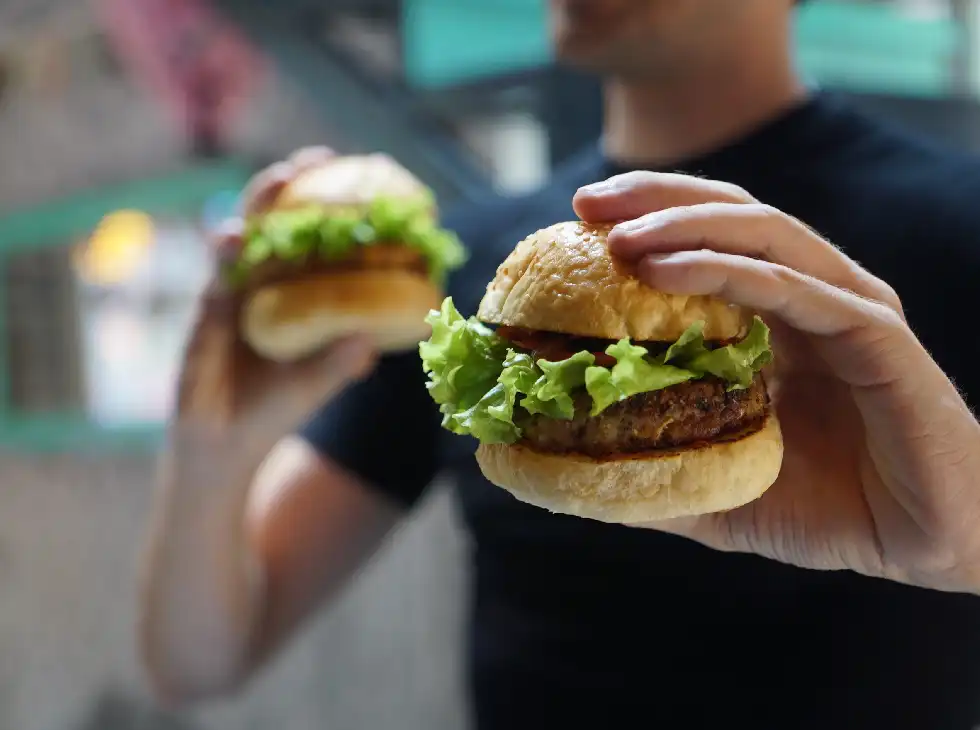CBD, short for cannabidiol, has been making waves in wellness. As its popularity grows, so do the questions surrounding its effects. One common query is whether CBD makes you hungry. Let’s delve into this topic and unravel the complex relationship between CBD and appetite.
Introduction to CBD and Appetite
CBD, derived from the cannabis plant, has gained attention for its potential therapeutic benefits. CBD’s versatility has sparked curiosity about its impact on appetite, from managing anxiety to alleviating pain. The belief that CBD might stimulate hunger stems from its association with the cannabis plant, notorious for causing “the munchies.” (1)

Understanding the Endocannabinoid System (ECS):
We must first acquaint ourselves with the endocannabinoid system (ECS) to grasp how CBD affects appetite. This intricate system regulates various bodily functions, including mood, pain, and appetite. The ECS consists of receptors, endocannabinoids (naturally occurring compounds), and enzymes that help maintain balance in the body.
The THC Connection:
When discussing appetite and cannabis, THC (tetrahydrocannabinol) takes the spotlight. THC, another prominent compound in cannabis, is known for its psychoactive effects and ability to induce “the munchies.” This phenomenon has led to the stereotype of cannabis users raiding their pantries.
CBD vs. THC: Different Effects on Appetite
While CBD and THC are compounds found in cannabis, they have distinct effects on appetite. Unlike THC, CBD is non-intoxicating, meaning it doesn’t lead to the euphoric high associated with cannabis use. Studies suggest that CBD might not have the same appetite-stimulating effects as THC. (2)
Studies on CBD and Appetite Regulation:
Recent research has explored the potential impact of CBD on appetite regulation. A study published in the journal “Psychopharmacology” in 2016 found that CBD did not significantly affect food intake in rats. Another study in the “Journal of Clinical Investigation” 2019 indicated that CBD might impact metabolism, potentially influencing weight gain or loss. (3)
CBD and Stress-Related Eating:
CBD’s potential anti-anxiety effects might indirectly influence eating habits. Stress and anxiety can lead to overeating or unhealthy eating patterns. By promoting a sense of calm, CBD could potentially help manage stress-induced overeating. (4)
CBD’s Potential Impact on Ghrelin and Leptin:
Ghrelin and leptin are hormones crucial for regulating hunger and satiety. Ghrelin signals desire, while leptin signals fullness. Some experts believe CBD might modulate these hormones, contributing to appetite regulation. However, more research is needed to understand this mechanism fully.
Individual Variation in CBD Effects:
It’s essential to recognize that CBD’s effects on appetite can vary widely among individuals. Factors such as metabolism, genetics, and existing health conditions affect how CBD interacts with the body.
CBD Dosage and Appetite:
The dosage of CBD might influence its impact on appetite. Some users report feeling more energized and alert with lower doses, while higher doses might induce relaxation. Starting with a low dose and gradually adjusting can help determine how CBD affects your appetite.
Real-Life Experiences and Expert Opinions
Anecdotal evidence from individuals who have used CBD sheds light on its potential influence on appetite. Some users report increased hunger, while others experience no change. Experts, including nutritionists and researchers, weigh in on this topic, emphasizing the complexity of the CBD-appetite relationship.
Using CBD for Weight Management:
The idea of using CBD as a tool for weight management has gained attention. Its potential to influence metabolism and stress-related eating behaviors has sparked interest. However, experts emphasize that while CBD might play a role, it’s not a standalone solution for weight management. (5)
Please note that while these experts provide insights based on their knowledge and research, the effects of CBD on appetite can vary among individuals. It’s advisable to consult a healthcare professional before changing your CBD use or dietary habits.
Conclusion: Does CBD Make You Hungry?
The answer is not a simple yes or no in the journey to answer whether CBD makes you hungry. CBD’s impact on appetite is multifaceted and varies from person to person. While some studies suggest potential effects on metabolism and hormone regulation, the consensus is that CBD’s influence on appetite is nuanced. As you explore CBD for its potential benefits, paying attention to your body’s responses and consulting experts for personalized insights is essential. The connection between CBD and appetite is an ongoing area of research, and as our understanding deepens, we’ll continue to uncover the intricate ways CBD interacts with our bodies.
